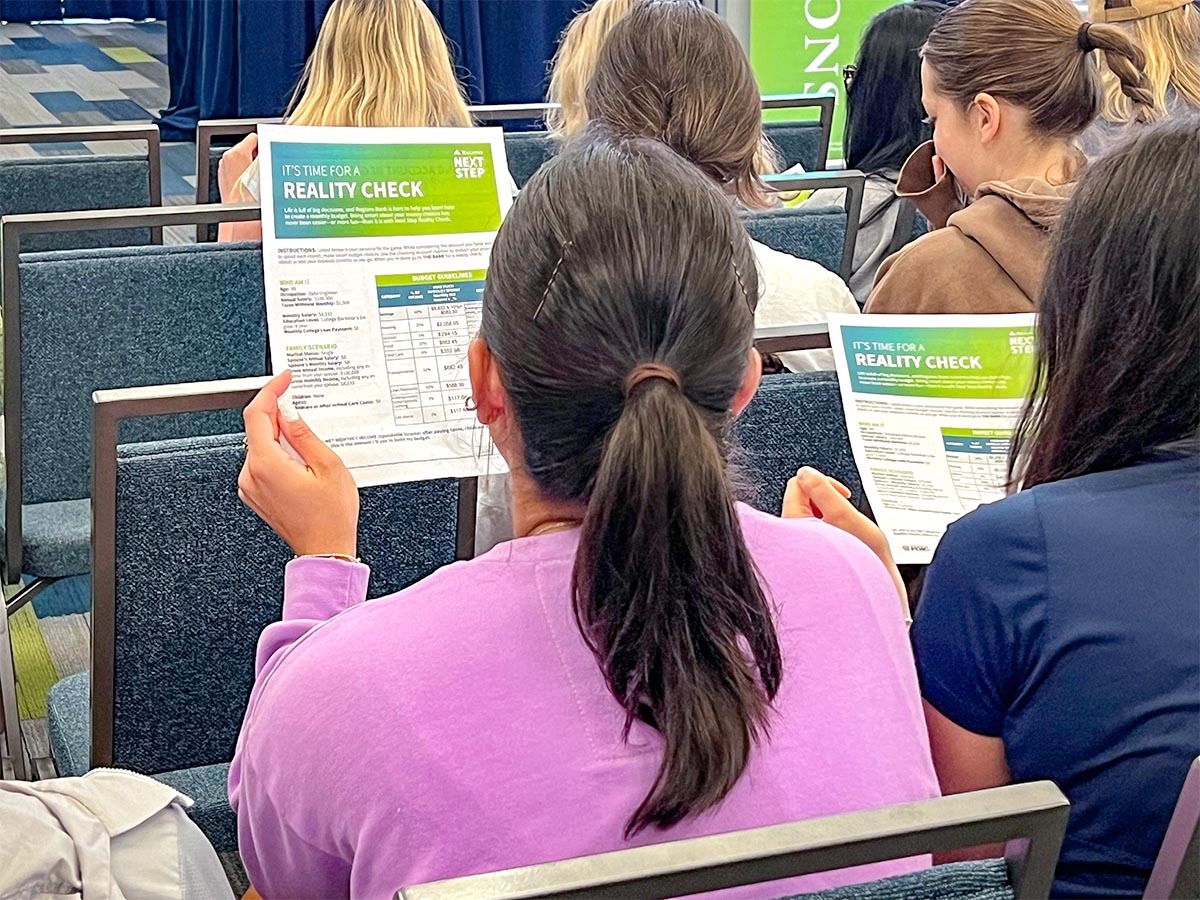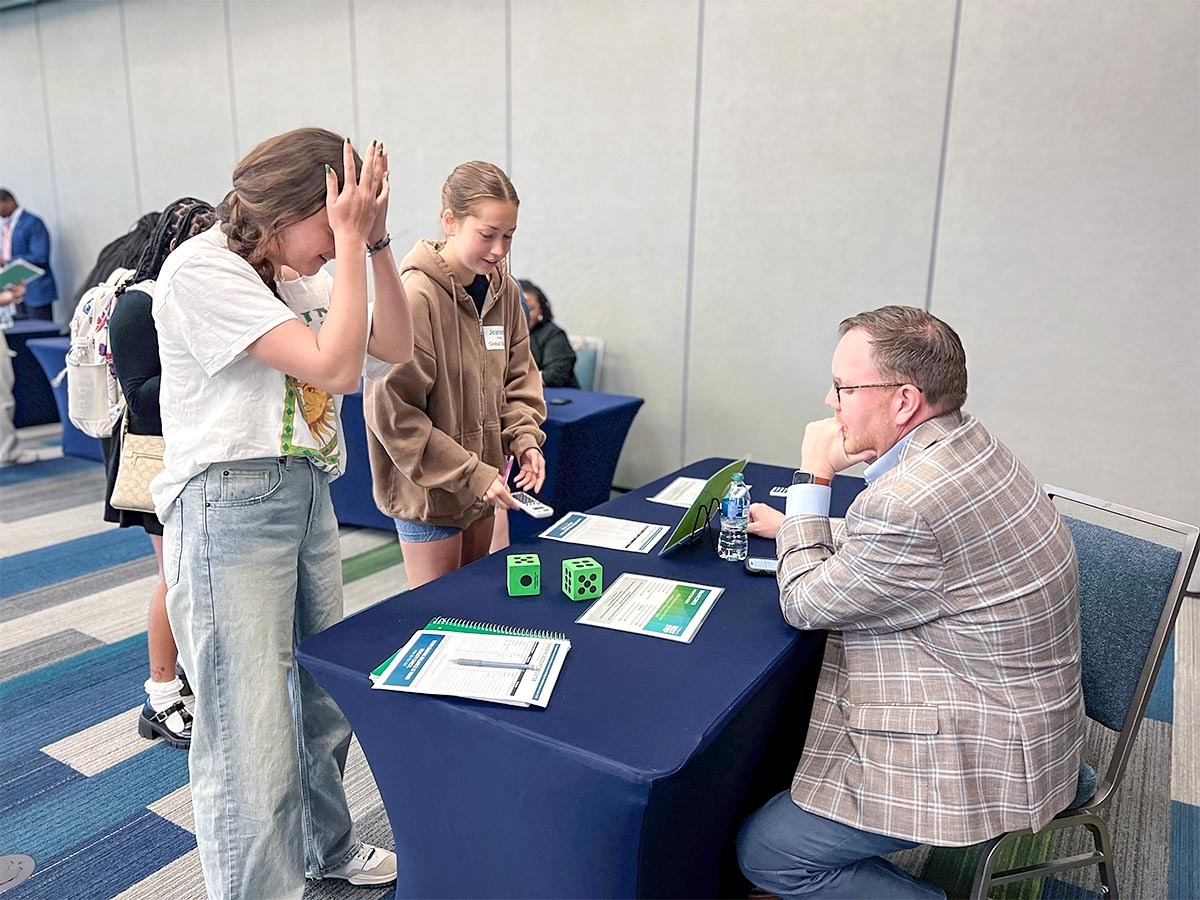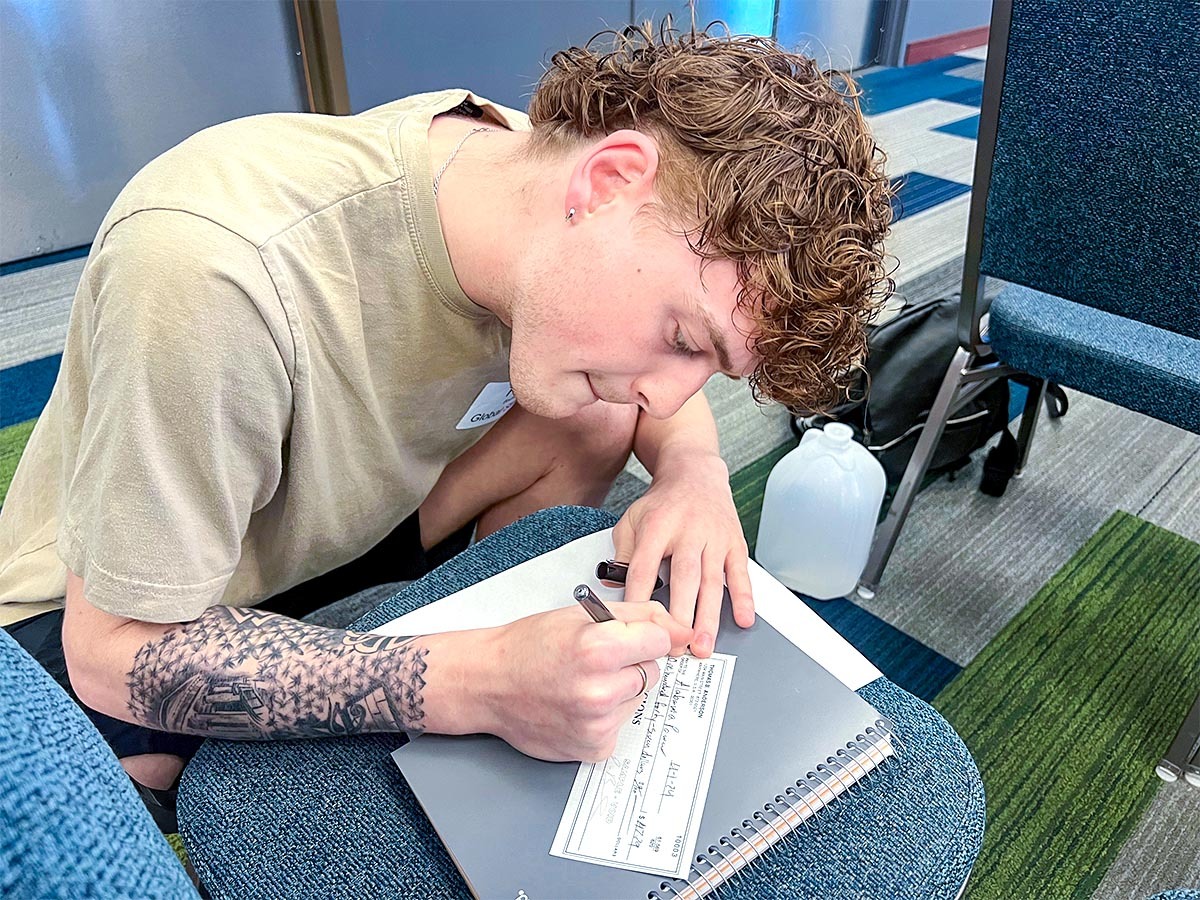College is a time for learning … and growing … and creating friendships that will carry forward long after the college days end.
It’s also a time where people can build financial habits that will benefit them for years to come. Meaning, beyond the friendships, beyond the degree, and all the other life experiences, one of the most important lessons from a student’s time at college can be how to build financial confidence.
At Auburn University, Regions has long worked with students to empower them with a strong foundation for their financial journey, so they are ready for whatever life brings their way. During the most recent Regions Day on the Plains, students walked through a unique, interactive simulation. The Regions Reality Check offered scenarios that represent financial realities people face daily in managing their spending, paying down debts, building savings, and more. It was part of the bank’s recognition of Financial Literacy Month.
“The goal is to help students build healthy financial habits early. Most students will leave college knowing how to make money but not how to manage it successfully,” said Cecilia Bailey, financial education manager at Regions Bank.
Bailey led the exercise, supported by Regions volunteers, and shared key information she often provides nonprofits, high school and college students, businesses and more as part of her role with Regions.
“Our experience tells us the one-on-one connections we build with people, ranging in age from students to seniors, can have a meaningful impact towards their financial development,” Bailey added. “That is part of fulfilling Regions’ mission to make life better.”
Financial Foundations for Life
Students participating in the Reality Check learned three key fundamentals.
The value of a budget. Students were required to have a minimum balance of $200 at the end of the exercise. They had to manage living expenses, utilities, debt and more with varying levels of income. For some, it meant finding creative ways, like having a roommate or getting a second job, to cut expenses and generate more income. Having a budget in place is an important first step to managing money.
 Students were presented life profiles that included information about their career, income and family dynamics that had to be navigated throughout the exercise.
Students were presented life profiles that included information about their career, income and family dynamics that had to be navigated throughout the exercise.
Managing unexpected events – like when the dishwasher breaks, or the tires need replacing. Unexpected events can have a major impact on a budget. But it doesn’t have to with the right planning in place. An emergency savings account can make these events a little less stressful. Just be sure to use it for actual emergencies.
 Regions associate Jason Isbell works with students Peyton Gilliam and Jeanette Grasty who learned they needed to replace a broken washing machine, creating an unexpected expense of $265 for the month.
Regions associate Jason Isbell works with students Peyton Gilliam and Jeanette Grasty who learned they needed to replace a broken washing machine, creating an unexpected expense of $265 for the month.
Fraud. Checks are still a method people use to pay bills, even with the rise of digital solutions that make moving money easier. At a time when fraudsters are committing check fraud, students had an exercise in check writing to reinforce these key principles to help protect their accounts.
- Always write a check in black or blue ink. Never pencil. Gel ink is recommended because it is more difficult for fraudsters to remove or change the details.
- Make sure the amount written on the second line of a check matches what is written in the numbers box.
- Never write personal information on a check, like social security numbers, etc. that fraudsters can use.
- Whenever possible, convert paper payments to digital solutions, like credit card or bill pay platforms.
- When mailing a check, take them directly to the post office rather than placing them in a mailbox.
 Auburn University student Riley Boutwell practices writing a check.
Auburn University student Riley Boutwell practices writing a check.
Helping people build financial wellness is a core priority for Regions Bank. Through Regions Next Step®, the bank’s year-round, no-cost financial wellness program, people can access tools, resources and more to help. For students especially, there are a number of real-life insights, financial guidance, and tips to help prepare for the future.
Regions’ Auburn-Opelika market executive, James Salter, said events like Regions Day on the Plains reinforce the bank’s position as a strong community partner.
“Auburn University is a special place, and Regions’ support here runs deep,” Salter said. “These students are our future community leaders and future bank employees, so financial wellness is important to our collective long-term growth. We deeply appreciate opportunities to be on campus and connect with students, faculty and alumni.”
Learn more about Regions’ work with Auburn University: